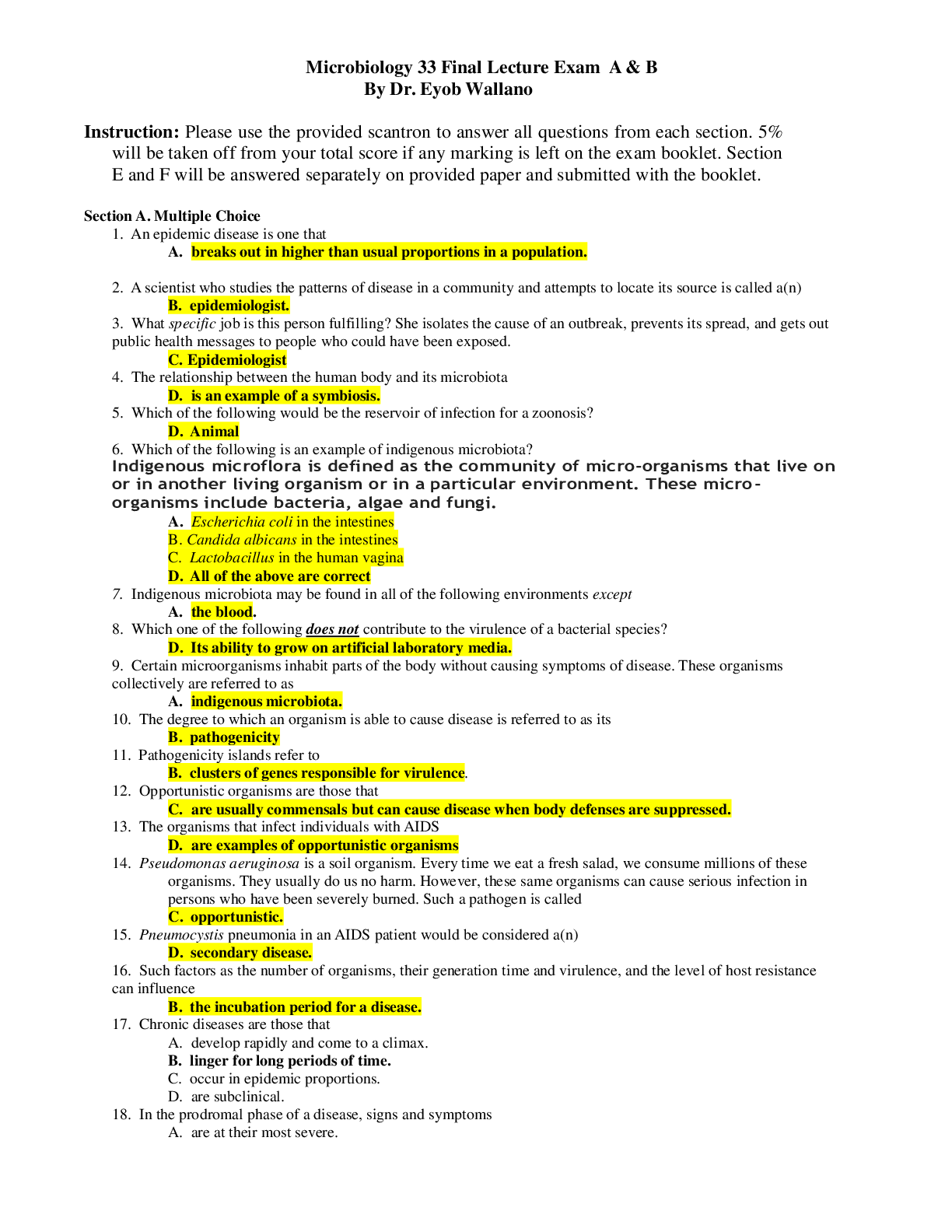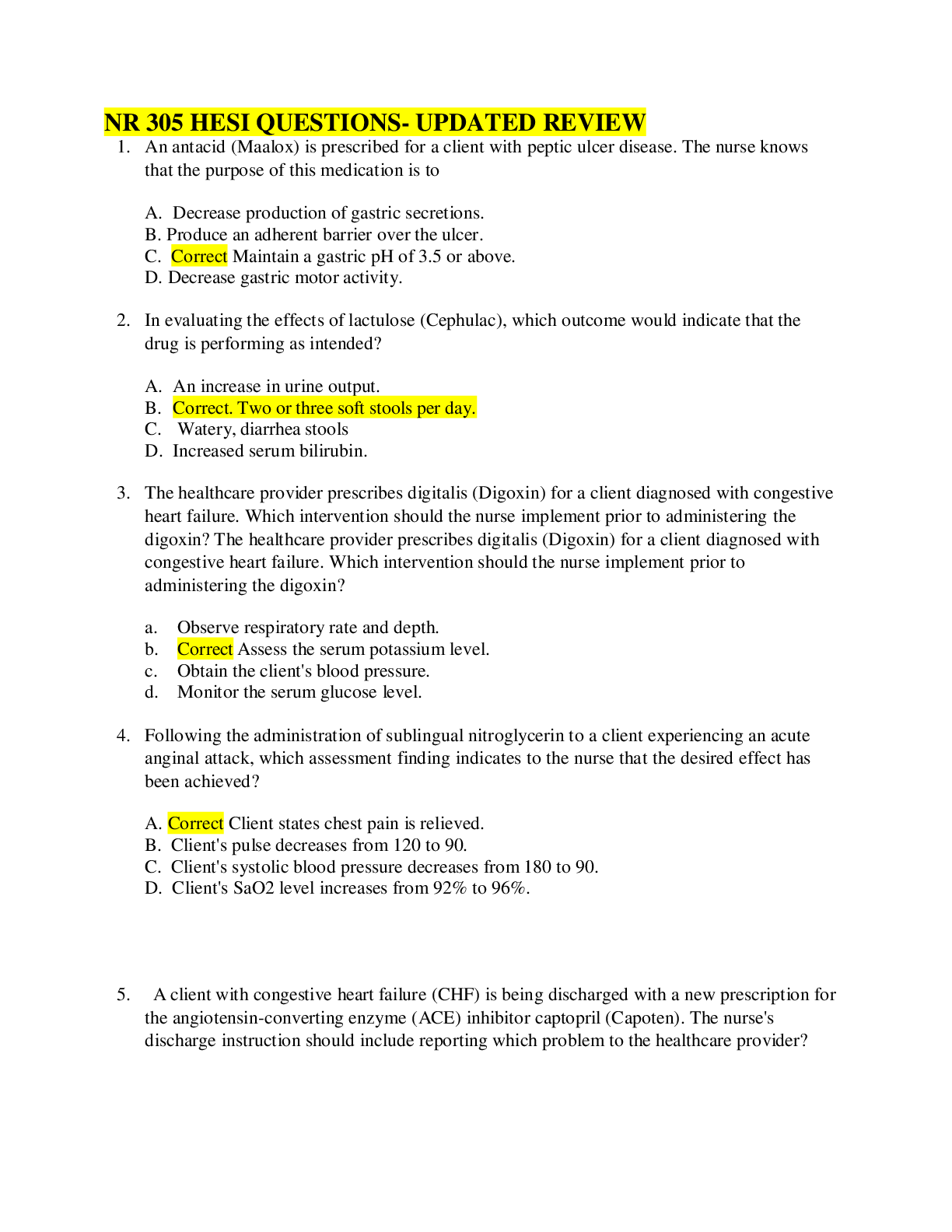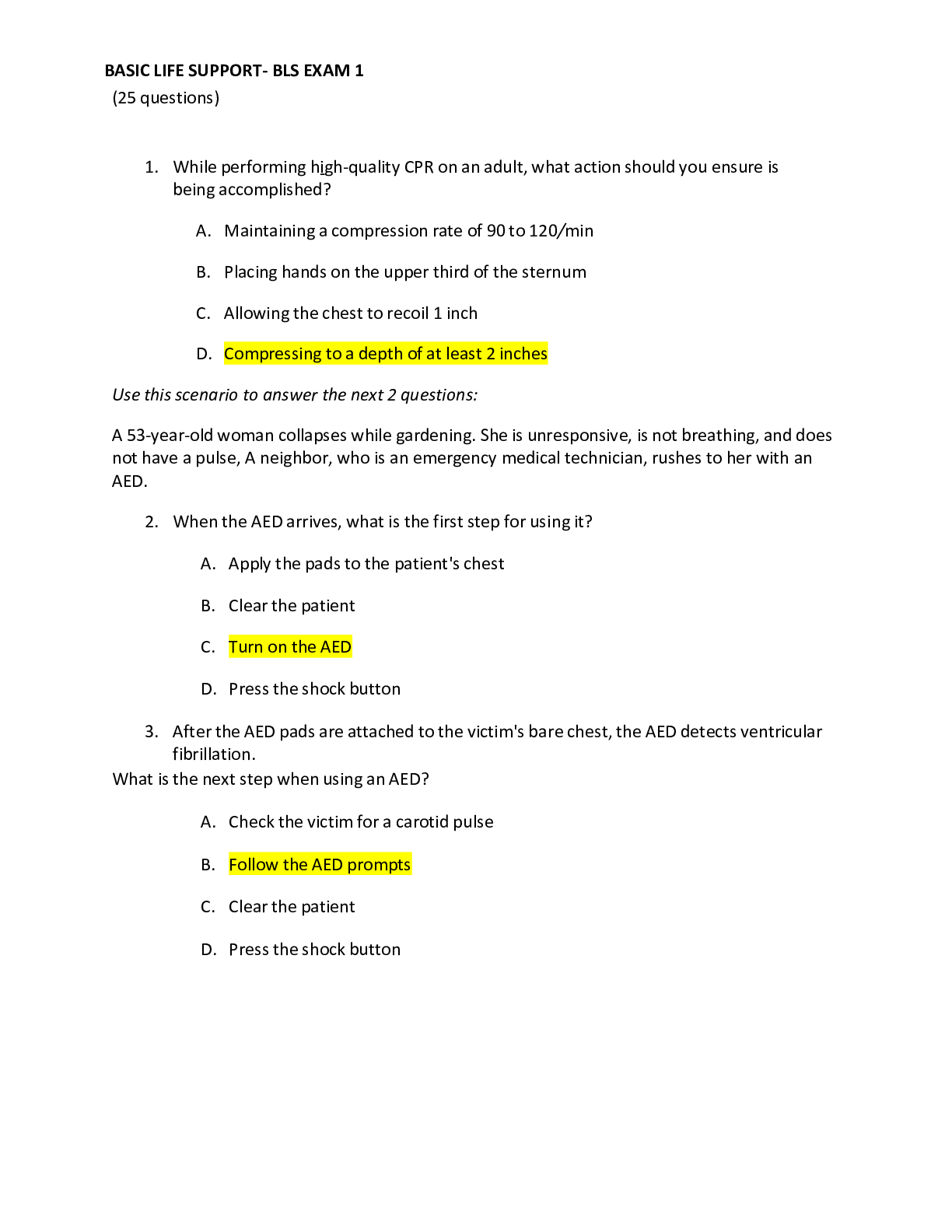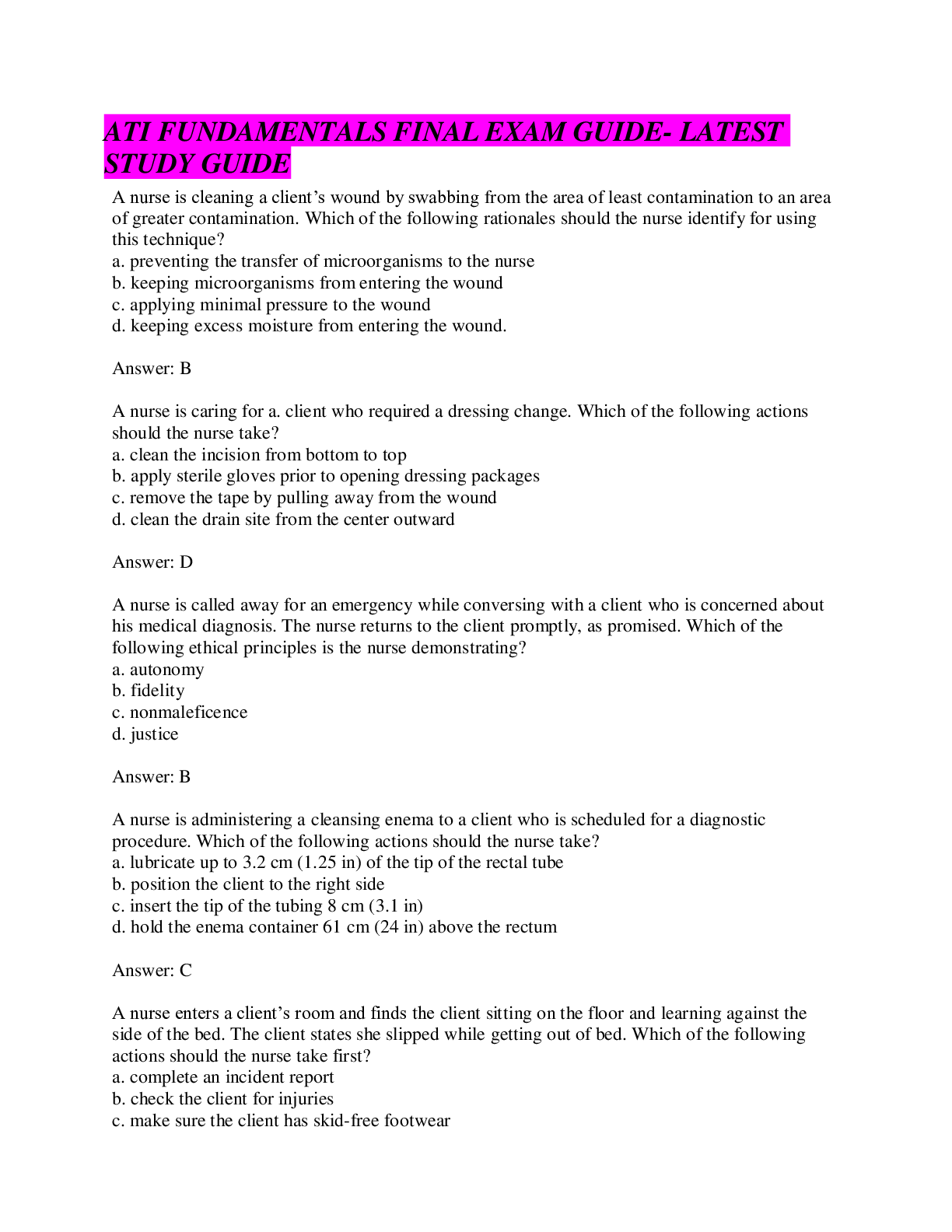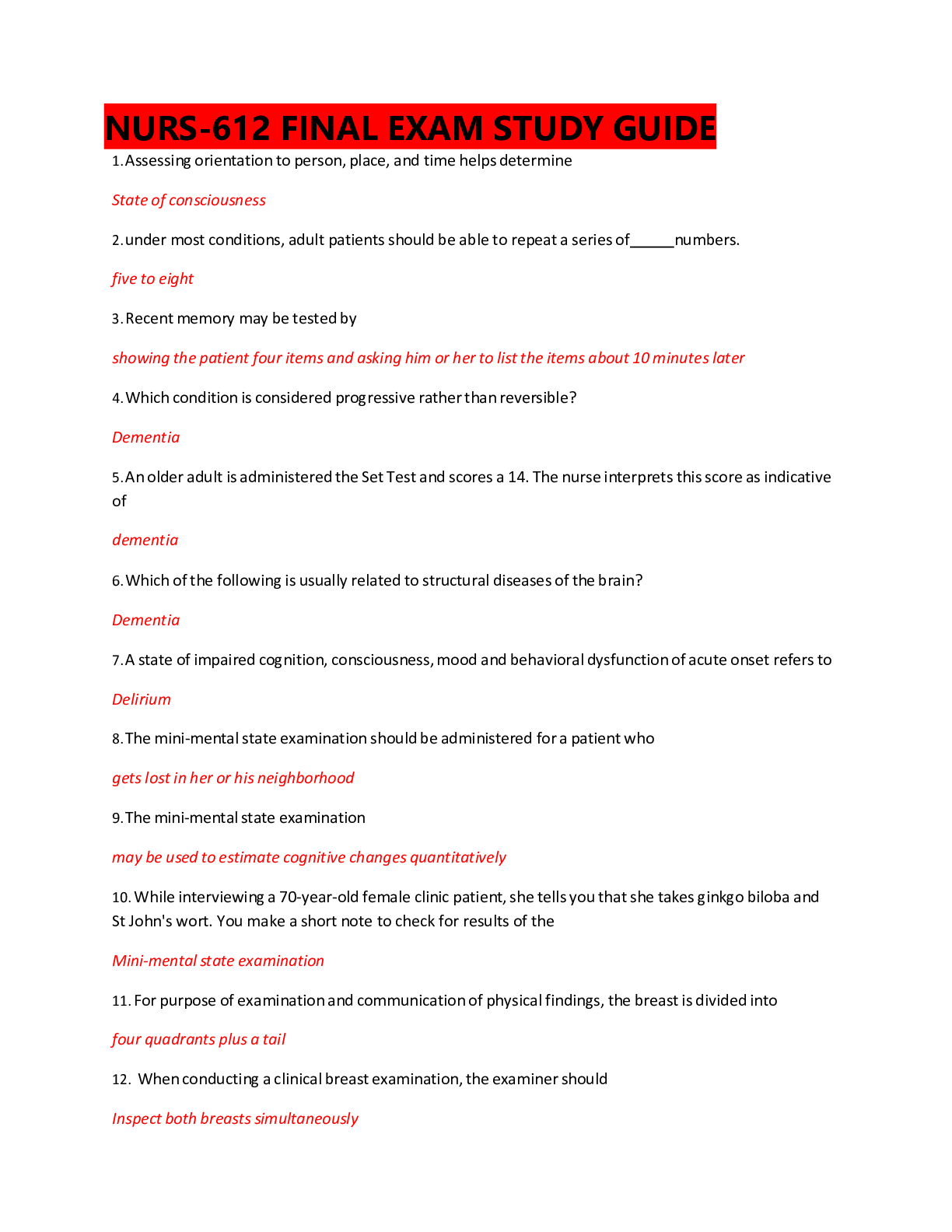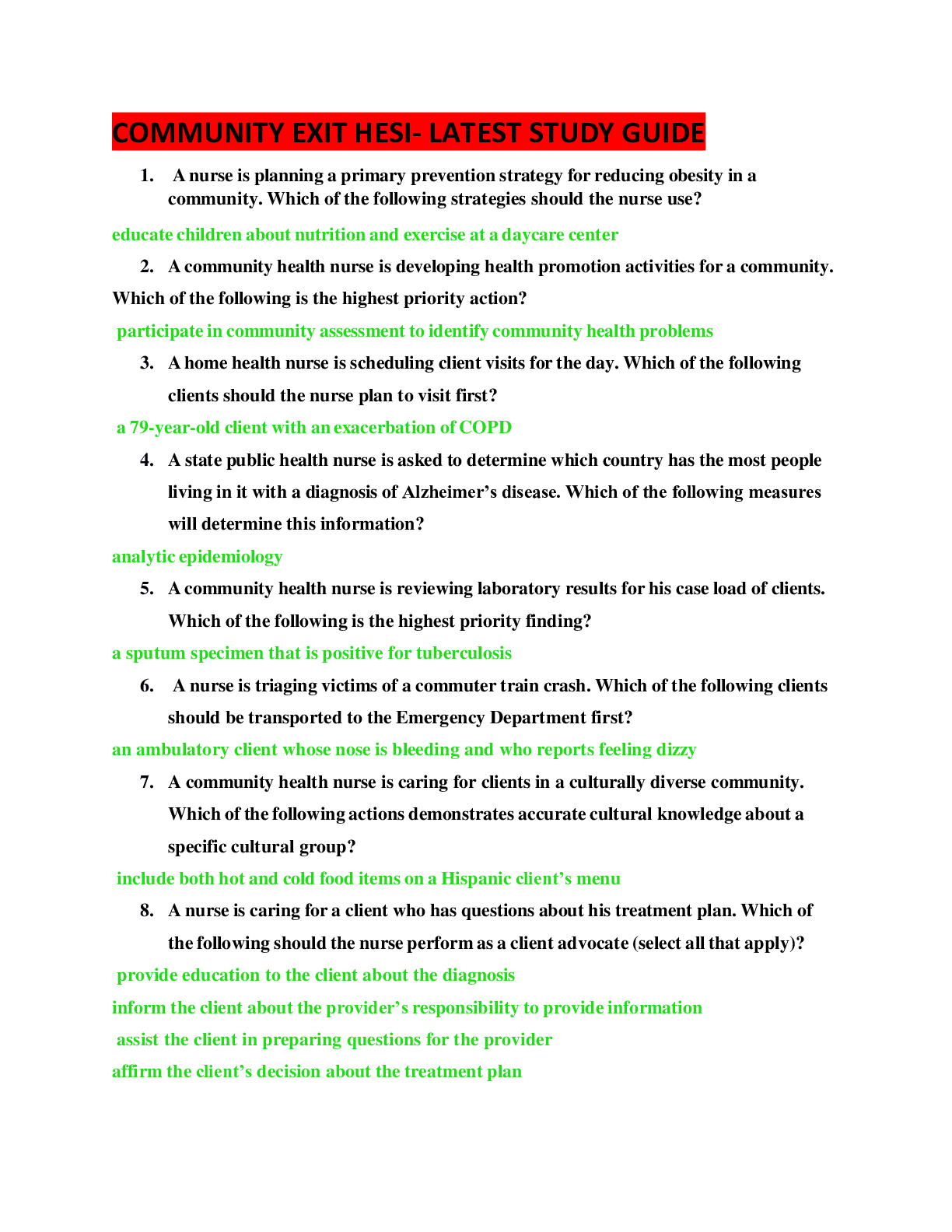Health Care > STUDY GUIDE > UPDATED GUIDE ON CARE OF OLDER ADULTS (All)
UPDATED GUIDE ON CARE OF OLDER ADULTS
Document Content and Description Below
UPDATED GUIDE ON CARE OF OLDER ADULTS BOOST Better Outcomes for Older Adults thru Safe Transition (Reduce readmissions) *Reduce 30-day hospital readmission rates for older adults * Improve pa... tient satisfaction *Identify high-risk patient s to prevent adverse events *Improve communication between providers & patients *Better prepare the patient and family for discharge CTI *A patient centered 4-week intervention program designed to improve quality of care and contain costs for patients with complex care needs as they transition across care settings TCM *Nurse acts as main Care mgr *She consults w/pt in hospital and at home within 24 hours of d/c *Accompanies pt to post d/c & f/u visits and provides weekly home visits also ongoing phone support for an average of 2 months Palliative Care Life threatening debilitating diseases and have quality of life but active treatment Hospice Family involved. Life expectancy 6 mos or less 3 Triple Aim Goals *Better Care * Better health outcomes *Lower costs Active Euthanasia A person directly and deliberately causes the patient’s death Ex: Morphine or phenobarbital Passive Euthanasia They don’t directly take a person’s life; they allow them to die Ex: Withholding meds or feedings, removing O2 Atrophy of Sweat Glands *Susceptible to head & cold. *Lack of glands allows you to overheat easily *Decrease wound healing Quality of Life Autonomy and Independence Orthopneic position Upright to prevent Shortness of Breath Restraints *Can cause death *Increase Falls *Injure self *Mortality rates increase with restraints *Bed rails *Mitts *Seatbelts in wheelchairs Gustatory Deficit Lack of appetite & sense of smell Senile Kyphosis Degeneration & attrition on the intervertebral disks particularly of their Anterior portions, in the physiological kyphotic THORACIC segments Wear and tear theory Cells wear out and cannot function with aging Isometric exercise Pushing on the wall Isotonic exercise Resistance bands Short gut syndrome Malabsorption disorder caused by lack of functional small intestine. Primary symptom is diarrhea, which can cause dehydration, malnutrition and weight loss Endocrine Decrease in BMR (Basal Metabolic Rate) Permanent decrease in mental capacity Dementia Satir’s Basic Principles for Communication *Invite *Arrange environment *Maximize Understanding *Maximize Communication *Follow Through SPICES *Sleep Disorders *Problems w/bathing or feeding *Incontinence *Confusion *Evidence of Falls *Skin Breakdown CONTINUED..................DOWNLOAD FOR BEST REVISION GUIDE AND SCORES [Show More]
Last updated: 2 years ago
Preview 1 out of 6 pages
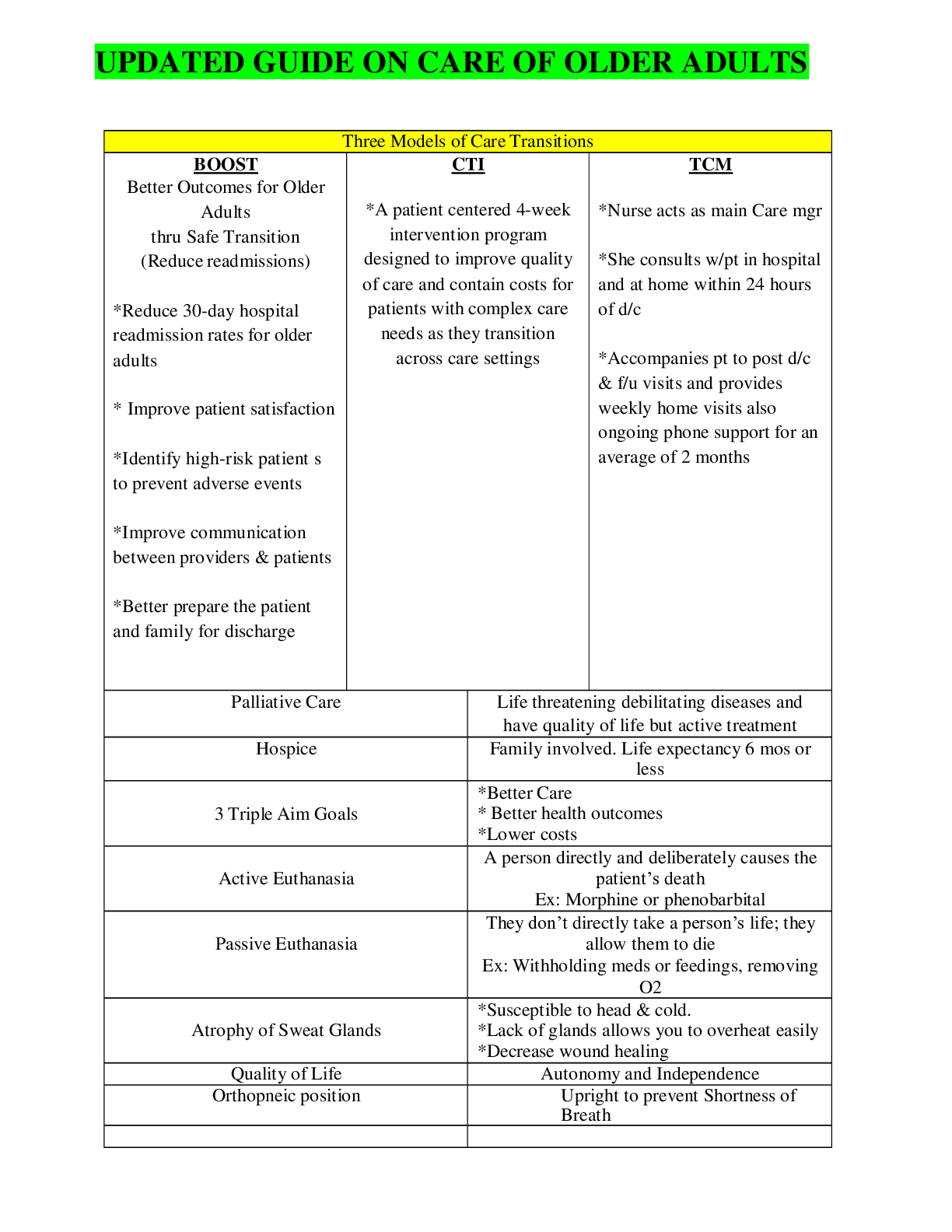
Buy this document to get the full access instantly
Instant Download Access after purchase
Buy NowInstant download
We Accept:

Reviews( 0 )
$11.50
Can't find what you want? Try our AI powered Search
Document information
Connected school, study & course
About the document
Uploaded On
Feb 18, 2022
Number of pages
6
Written in
Additional information
This document has been written for:
Uploaded
Feb 18, 2022
Downloads
0
Views
91

